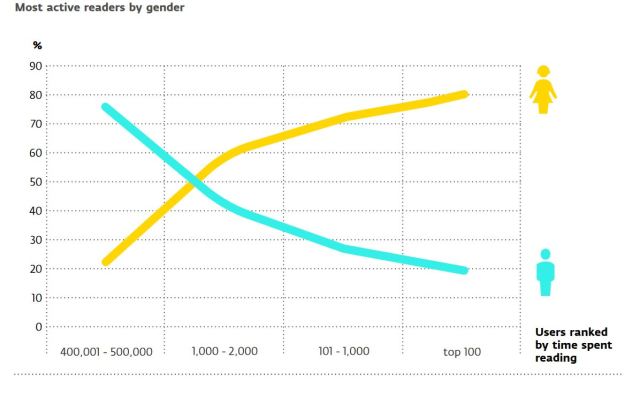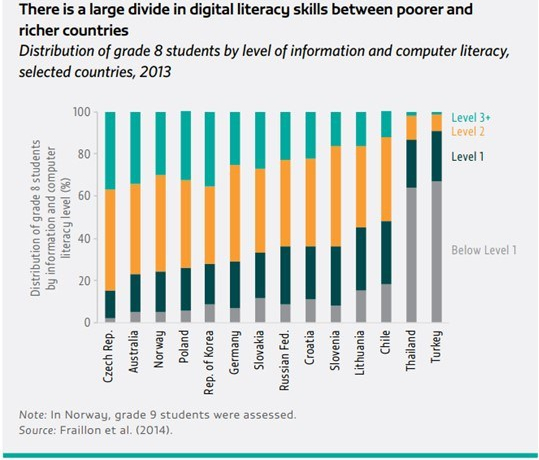 The meaning of the word literacy has developed continuously over the years. Today, the fact that International Literacy Day is on the theme of literacy in a digital world reminds us how the world has changed.
The meaning of the word literacy has developed continuously over the years. Today, the fact that International Literacy Day is on the theme of literacy in a digital world reminds us how the world has changed.
At the end of the US Revolution in 1787, Thomas Jefferson wrote from Paris that, “were it left to me to decide whether we should have a government without newspapers or newspapers without a government, I should not hesitate a moment to prefer the latter. But I should mean that every man should receive those papers and be capable of reading them.”
Subsequent futurists thought that books would become obsolete. In 1894, a bibliophile, Louis Octave Uzanne published ‘The End of Books’ warning that electronic media would soon replace books.
In recent years, the mass circulation of printed material rapidly declined in many countries. UNESCO stopped collecting newspaper circulation information in 2004. Not only are newspapers scarce in many countries, but so are books and libraries. For example, in Nigeria there is one library for every 1,350,000 people. Nigerian linguist Nolue Emenanjo termed Nigeria as nearly “bookless”.
At the same time as newspapers are declining, mobile phone use is growing. It is estimated that more people in the world today have access to a phone than to a nearby toilet (6 out of 7 people, compared to 4.5 out of 7). Even in Sub-Saharan Africa where there are fewer cell phone subscriptions, mobile devices are used across the board for banking, bill paying, social communication and even engaging with political leaders by text messages. Such universality of mobile phones alters not only the amount of reading, but also the type of reading that is required. Mobile phones can enhance literacy, for instance, in non-dominant languages, which often do not appear in printed books, and certainly not in many schools.
 Note: Sub-Saharan African countries are in red.
Note: Sub-Saharan African countries are in red.
Source: World Bank development indicators
Technology changes the relationship of people with reading
Another core benefit of the rise of technology is that it is a new platform for reading for millions around the world. This has huge potential for literacy in general. One programme in Niger, for instance, which used cell phones as part of an adult education program, improved reading and numeracy outcomes significantly more than among similar students in programs without cell phone exercises.
To better understand how technology can facilitate reading, UNESCO, in partnership with Nokia and Worldreader, surveyed the habits, preferences and attitudes of 4000 mobile readers in seven countries Ethiopia, Ghana, India, Kenya, Nigeria, Pakistan and Zimbabwe).
From tracking the usage of the Worldreader e-book application – one of the most popular in developing countries – UNESCO discovered that the majority of readers are male but the most active and intensive readers are female. On average, women spent 207 minutes per month reading on their mobile phones during the three-month period of the study, as compared with 33 minutes per month for men. The majority reported that they enjoyed reading even more after they started reading on their mobile phones, regardless of their initial attitudes towards reading. Of the respondents who reported to have disliked reading, roughly two thirds reported that they like reading more after using their mobile phones to do so. The study concluded that people who do not like to read in general may eventually begin to enjoy reading more after they start reading on their mobile phone.
If the meaning of literacy is constantly changing, how then can we define it to be able to measure it in the context of SDG 4, our global education goal? A measure of these skills should capture how individuals use technology in a critical and creative way to manage and create information, solve problems and communicate. Different definition have been used although none has yet universal currency. In one definition, the International Computer and Information Literacy Study (ICILS), which was administered to students in 21 education systems in 2013, defined ‘computer literacy’ as ‘an individual’s ability to use computers to investigate, create, and communicate in order to participate effectively at home, at school, in the workplace, and in society.” The study tested students using computers on a few select tasks, including creating a poster, a web page and a presentation. Four proficiency levels were developed to evaluate the results. Level 2 showed a basic understanding. In the Czechia, 85% of students performed above this level, compared with 9% in Turkey and 13% in Thailand.
This large gap in digital literacy between richer and poorer countries may reflect the degree of access to computers at home and school. Even within countries, ICILS results showed large differences according to socio-economic status. For example, in Chile students with parents of low occupational status scored on average at level 1, while those with parents of high status scored on average at level 2.
However, the choice of themes in assessments raises the question whether participants understand the tasks in the same way in different countries. To extend coverage to low and lower middle income countries, it is essential to develop context-appropriate material for surveys of this kind. Technology and the digital world is just another twist in the evolving meaning of literacy.







Pingback: What do we mean by literacy in a digital world? — World Education Blog – The Kappu Blog
due to digital changes reading hobby is switched from book to e-books and websites, blog and after social media induction everything suddenly shifted over micro blogging and other mediums, educational resources are now good fb pages, websites and twitter profile.
LikeLiked by 1 person
Nice blog. technology has really changed everything
LikeLike
Pingback: What do we mean by literacy in a digital world? — World Education Blog – Site Title
Pingback: What do we mean by literacy in a digital world? — World Education Blog | dropzee's Blog